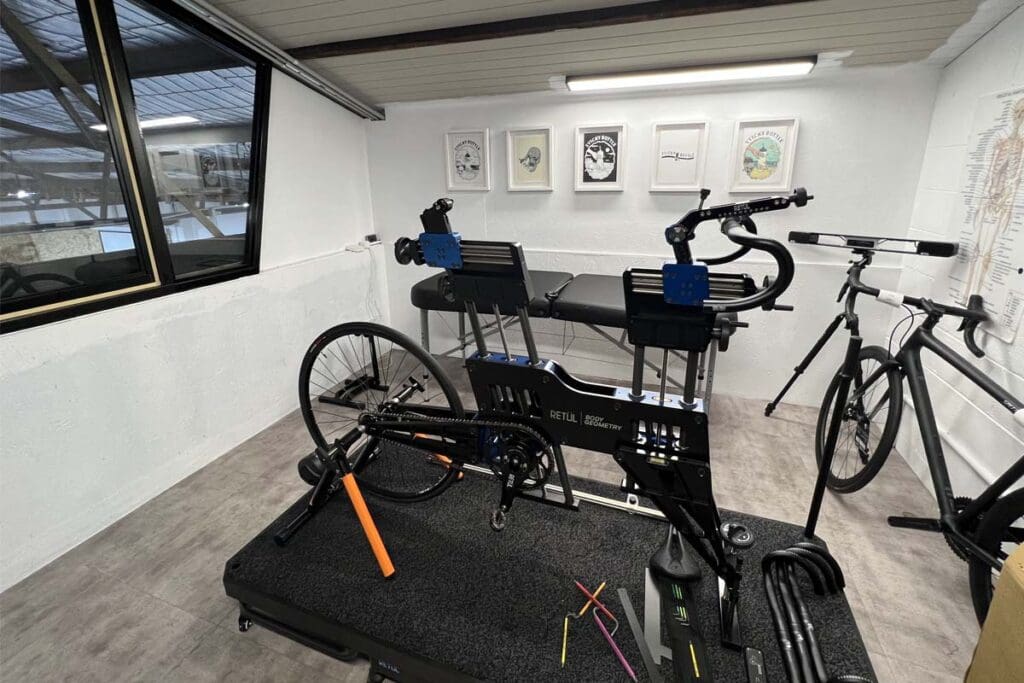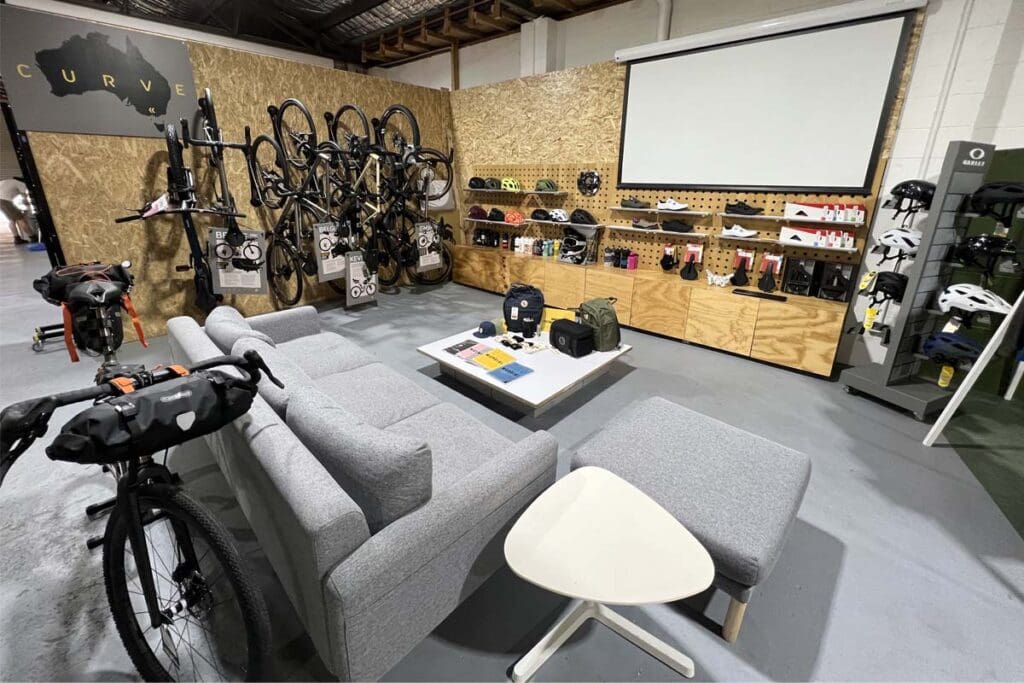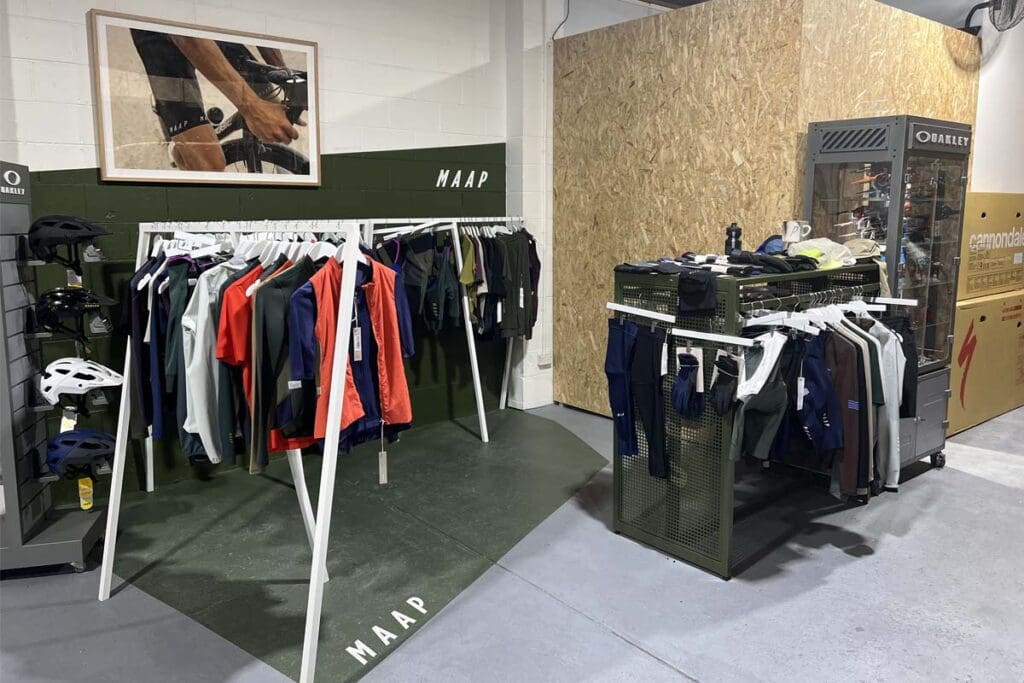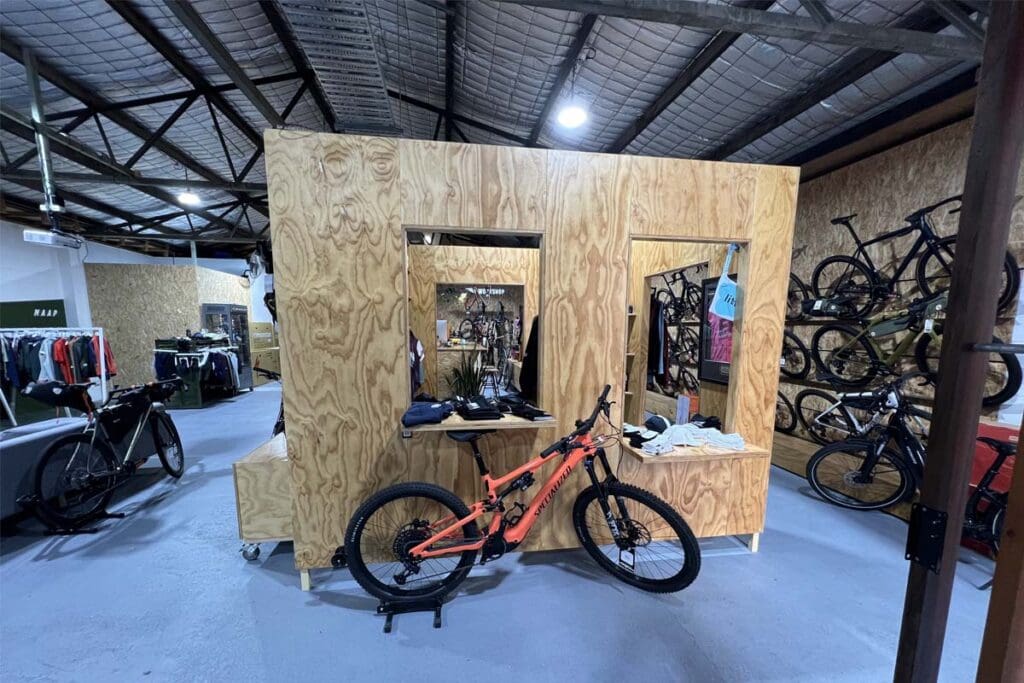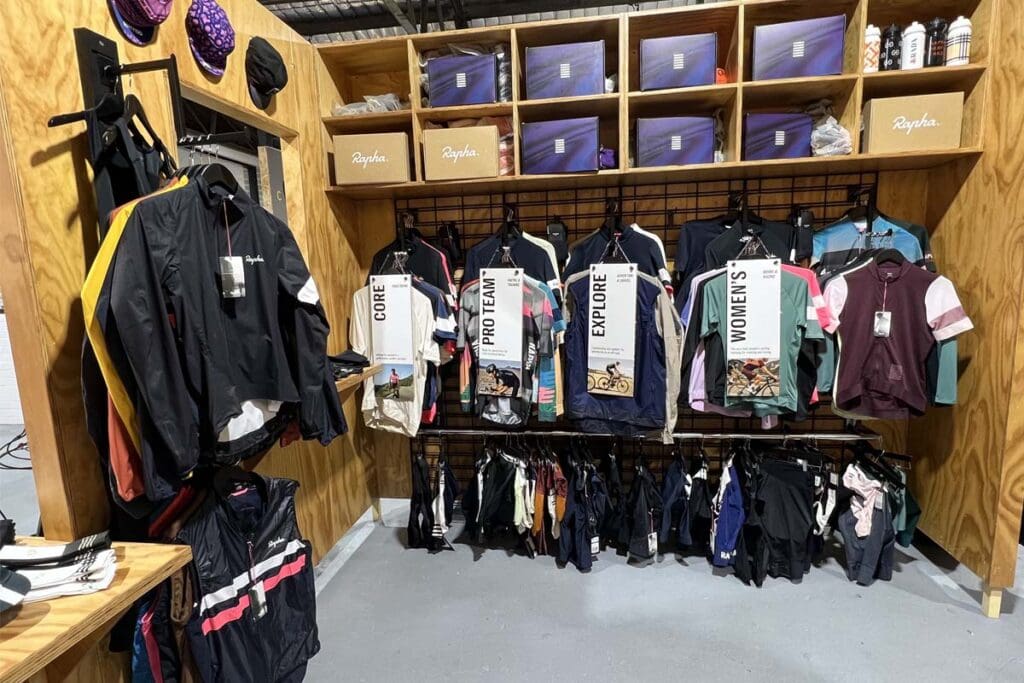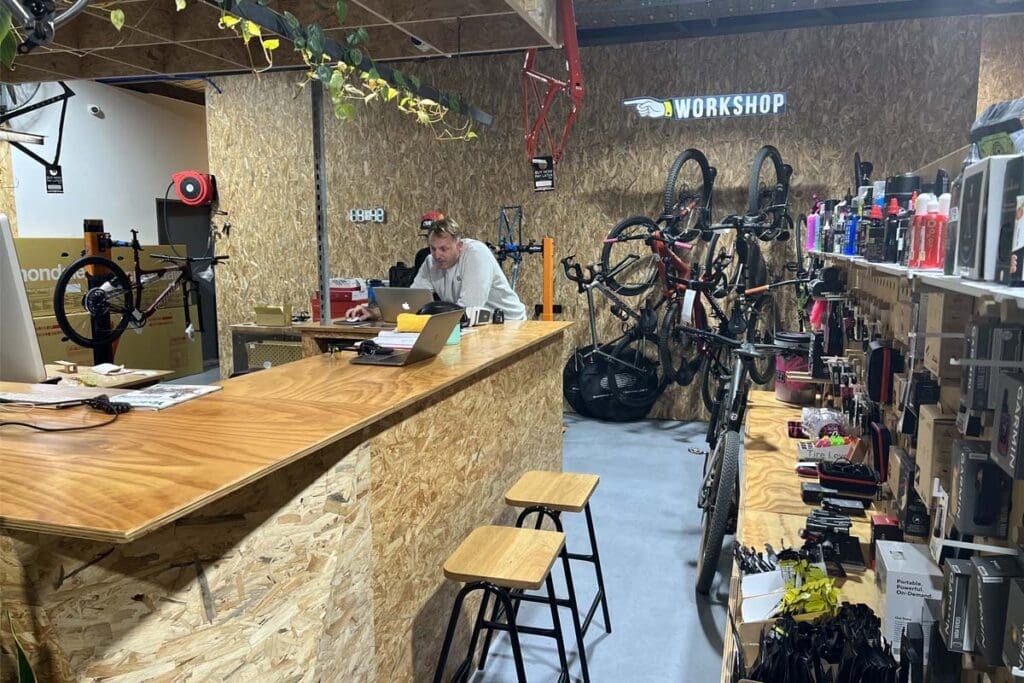How to Sell Nearly $1 Million in Apparel Annually
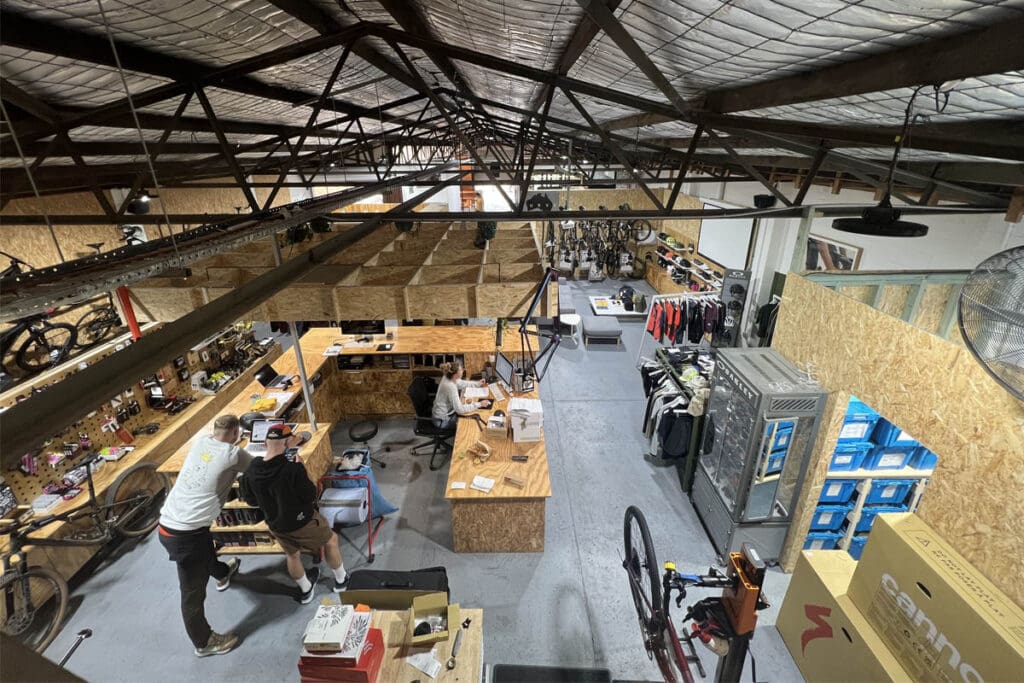
Brookvale, NSW
Back in early 2021, I phoned Sticky Bottle as part of our monthly How’s Business column, in which we speak to bike shop owners and managers across Australia and NZ.
As you can see in that column, owner Justin Roscoe made the rare revelation that they sold a lot of cycling apparel through their store. In fact, he said at the time they were doing over half a million dollars per year at cost in apparel sales.
At the end of that conversation, I said that I’d like to come and see for myself any store that can do so well in the apparel market because, due to strong competition from online sellers, many bike shops have either cut their apparel back to a very basic range or, in some cases, given up entirely.
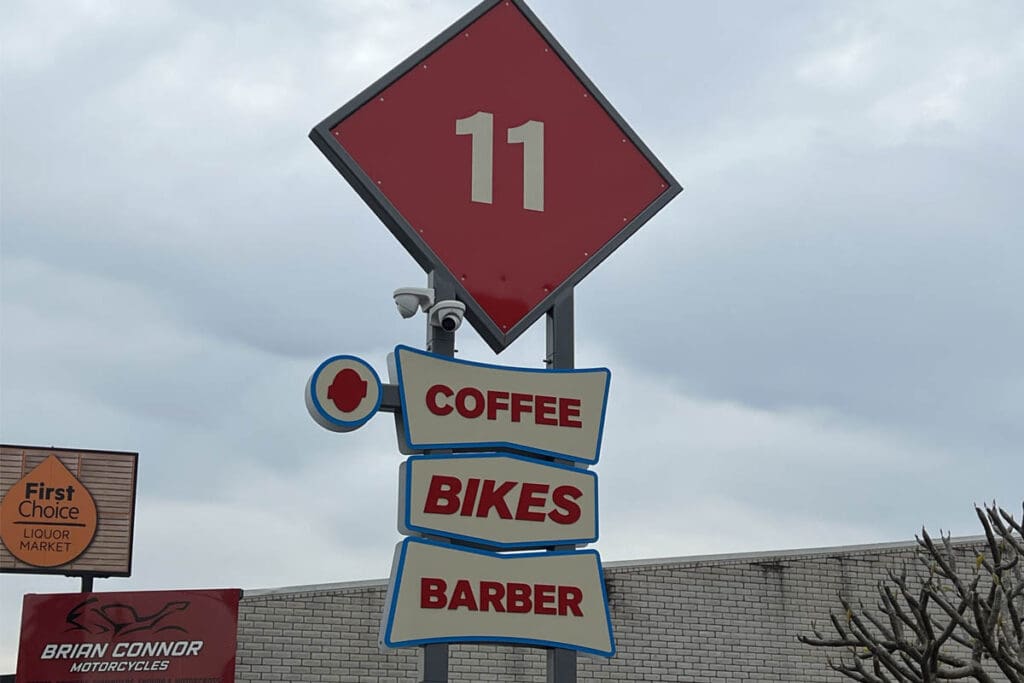
It took over two years but I finally made it to Sticky Bottle, which is located in Brookvale, a suburb of Sydney’s Northern Beaches region. Sticky Bottle lives in a renovated warehouse in the heart of a busy and crowded light industrial precinct, where space is at a premium. Surrounding this are some of Australia’s most expensive beachside suburbs, including Manly, Curl Curl, Dee Why, Collaroy and Narrabeen. In other words, there are a lot of wealthy customers living in Sticky Bottle’s vicinity.
In case you’re wondering about the name, ‘sticky bottle’ is a slightly ironic description used in road racing when a rider is handed a drink bottle from their team car and is then given a free ride for a few seconds by hanging onto the bottle while the car accelerates.
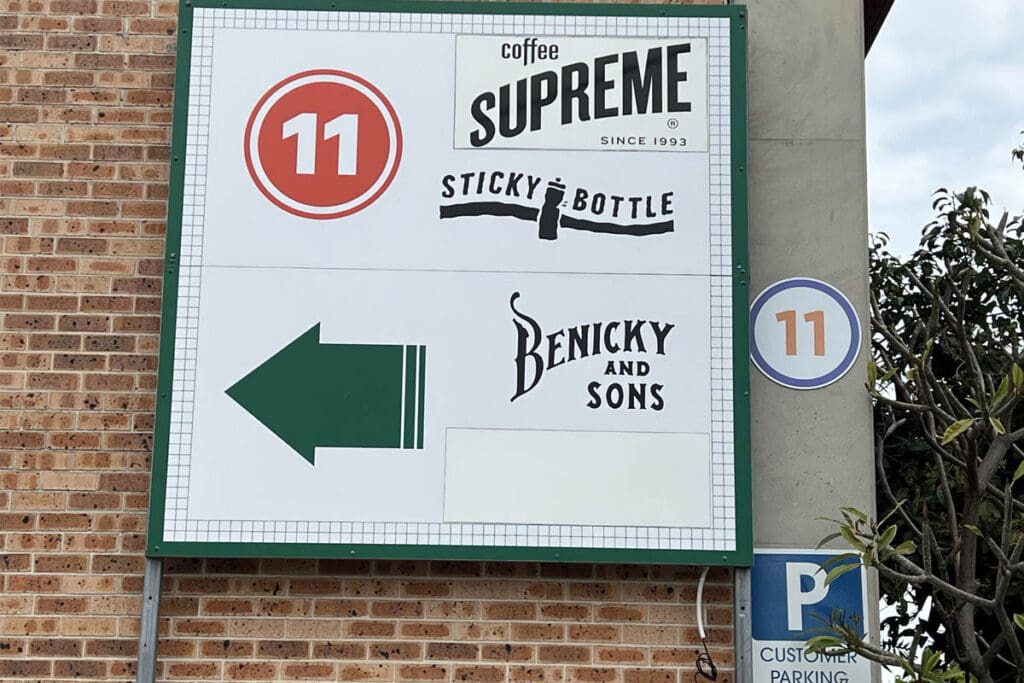
Sticky Bottle is at the back of the warehouse. Closest to the street is a coffee shop, then a barber shop. All share the same high level of design ethos, so they appeal to the same clientele. Justin leases the entire premises, then sub leases to the other two businesses. He used to also own the coffee shop but later sold it deciding it was better to just focus on his bike business while maintaining the club house vibe.
Perhaps it should come as no surprise that Justin’s bike shop has a unique flavour, because his background is also unusual for bicycle shop owners. Justin is from the UK, where he trained as an architect but didn’t practice in his chosen profession. Instead, he worked in the building and construction industries, before migrating to Australia in 2010.
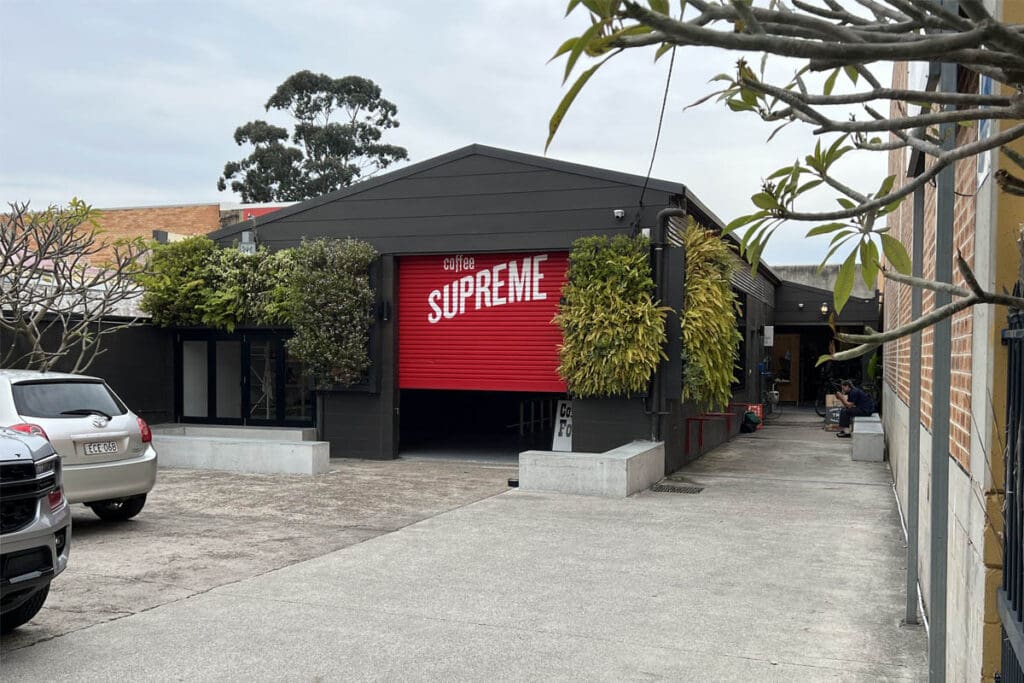
Sticky Bottle’s workshop charges $200 per hour for labour. It has been at that rate for about three years and Justin is considering increasing this due to increase in cost of rent, consumables and staffing costs. This is the highest rate I’ve come across in the Sydney bike shop scene but, thanks to having top notch mechanics, including one he recruited specially from the UK, the workshop is busy.
Unlike most shops, they don’t offer three or four levels of standardised servicing packages. Instead, they assess each bike and decide upon what each customer needs.
Customers are asked to pre-visit so the Sticky Bottle mechanics can assess the bike and see what parts it might need. Then they can order any parts they don’t have in stock, ready for when the bike comes back for its scheduled repair day.
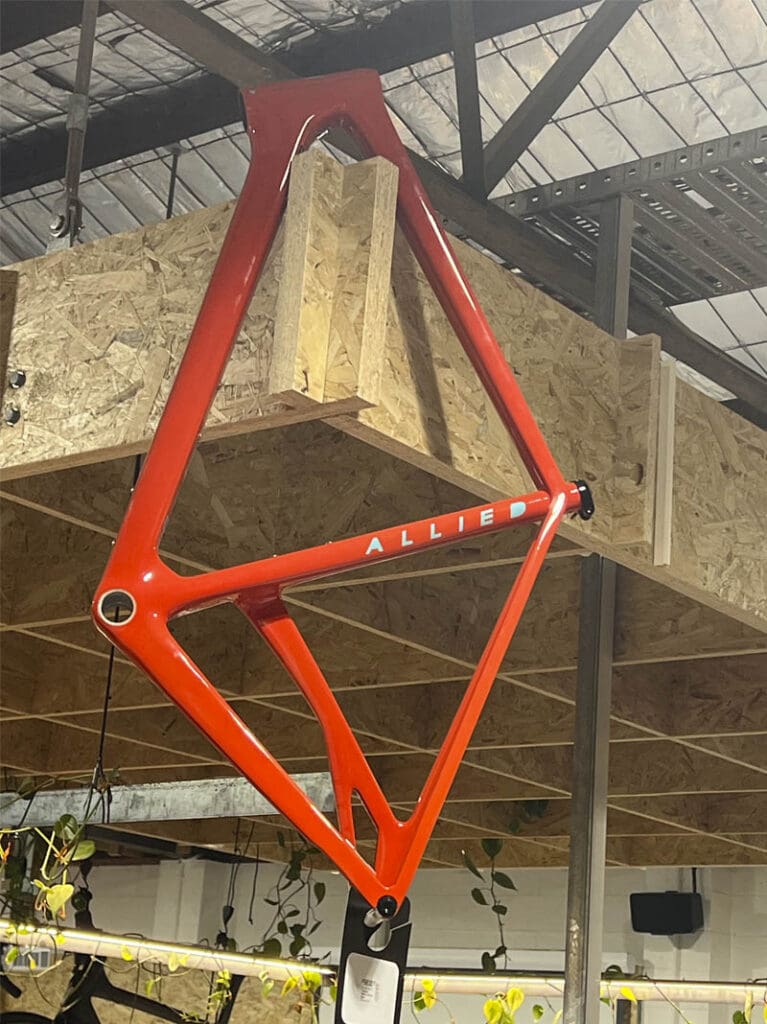
They don’t have a lot of space for customer bikes and like to have them in and out in the same day. Thanks to the pre-visit assessment, they can achieve this goal in most cases. Their workshop can be booked up to two weeks in advance but they don’t take bookings any further in advance than this, this helps them to avoid backlog and also deal with adhoc repairs for their regular customers.
Justin confirmed apparel sales are still a big part of their business. They’re doing close to $1 million per year in clothing at retail value. They usually achieve a 45% margin on clothing which equates to a mark-up of 82%.
They now only do MAAP and Rapha. They were doing Black Sheep when we called for How’s Business but have since decided to focus on the two core brands.
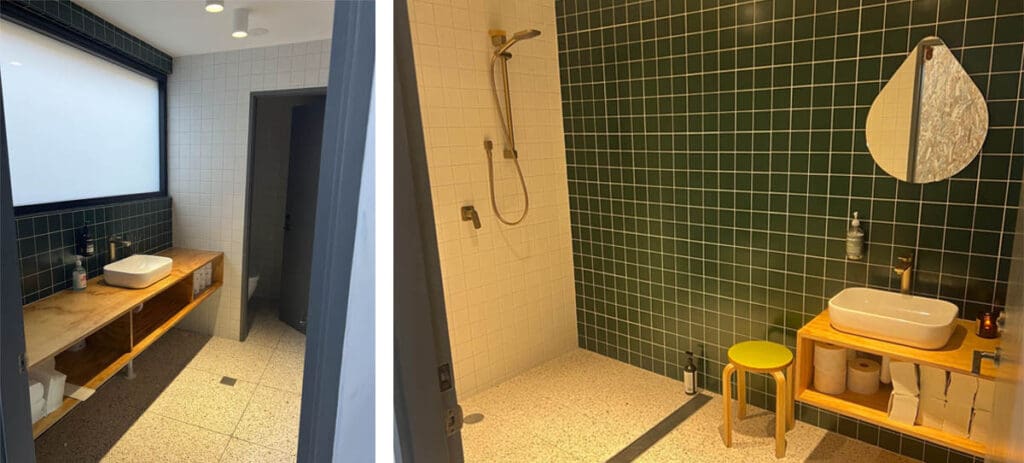
How do they compete against Rapha itself, which has very few Australian dealers and sells a lot online direct to consumers?
Justin says one key advantage is that Rapha only now distributes from Manchester, UK and it takes about a week for Rapha’s direct online Australian-based customers to receive their orders. Sticky Bottle can deliver next day to Australian customers, from its extensive in-house stock.
If you visit Sticky Bottle’s website you’ll find a site that’s presented to the same high standard as its physical store. Justin revealed 40% of its total sales turnover is online.
Justin attended a dealer meeting recently hosted by Specialized that said that if a bike shop doesn’t have a good web presence, they’ll be out of business in the next five years.
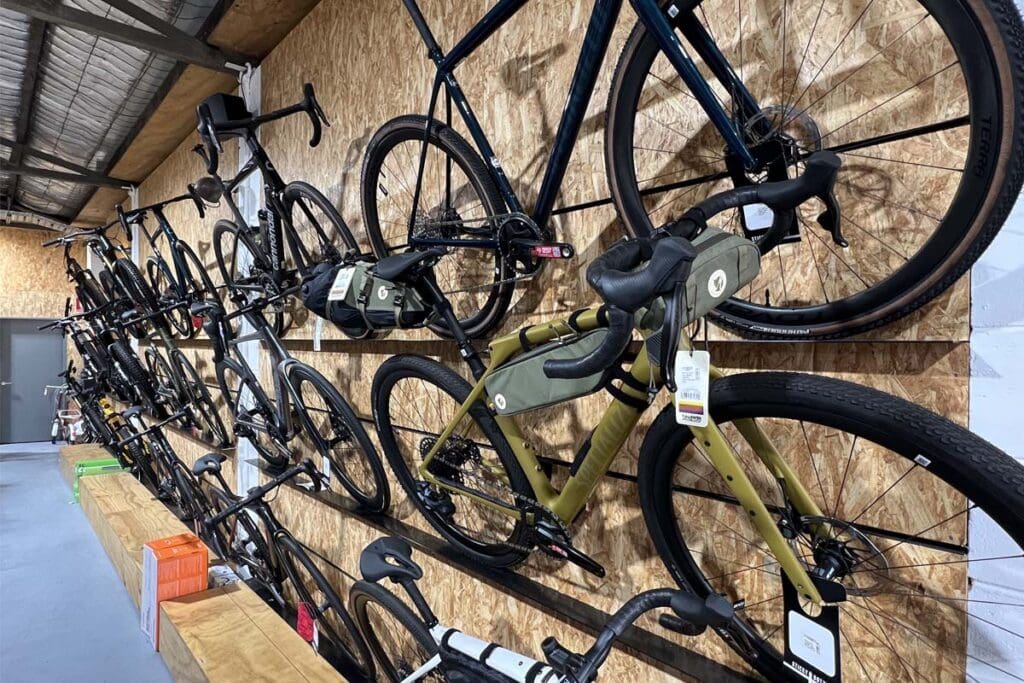
“We’ve built a strong online community and we offer a curated range,” he explained. “We don’t try to offer everything. We stick to our core focus, which is gravel bikes and high-end products that we try and test.”
Justin says it’s not enough to have a nice website. Running regular events and rides that support building a community are critical.
“People from Melbourne will buy online from us even if they can’t come to the store, because they want to be part of our wider community,” he said.
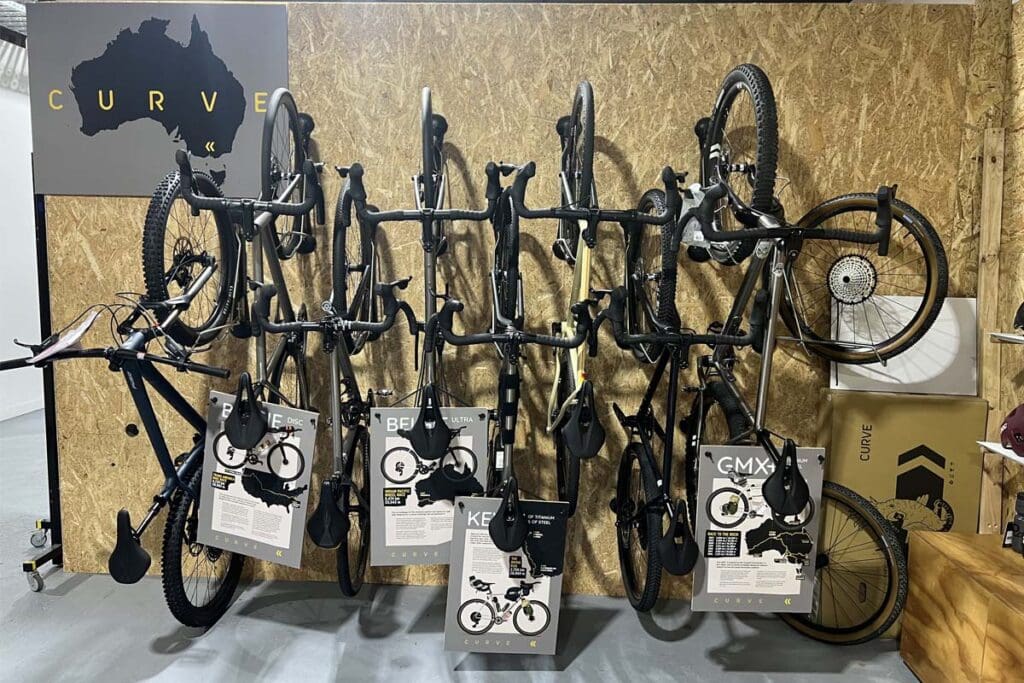
Justin also is the exclusive Australian importer of Allied. These US-made carbon fibre gravel bike and road frames retail for $6,500 upwards, so complete bikes, which are built to order, are well north of $10,000. Justin is considering wholesaling these frames to other dealers in future but for now is happy to sell them solely via Sticky Bottle.
He’s also a dealer for Curve, Cannondale, Specialized and Brompton, and previously sold Focus and Cervélo.
Sticky Bottle is a gravel specialist but also sells some high-end road and mountain. This shop is proof that, in large cities at least, there’s good potential for bike shops that carve out a niche, provided they execute their strategy well.
